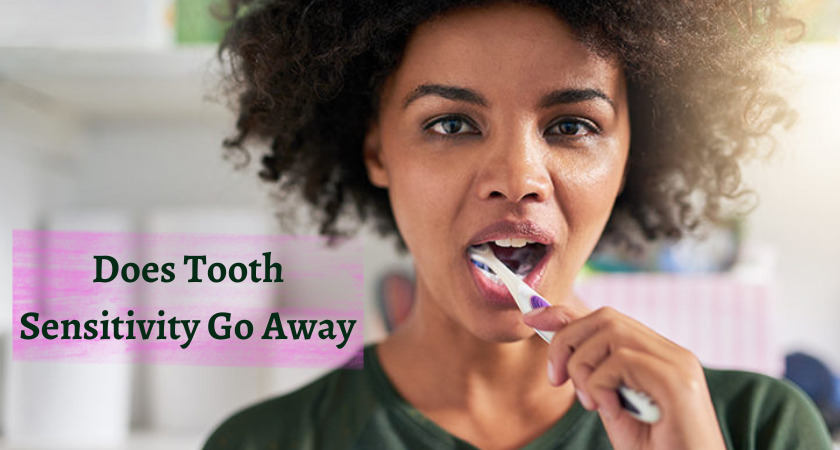Wisdom teeth removal, also known as third molar extraction, is a common dental procedure performed to alleviate various issues associated with impacted or problematic wisdom teeth. While the recovery process following wisdom teeth removal typically involves some degree of discomfort and swelling, tooth sensitivity is a specific concern that patients may experience post-surgery. In this comprehensive guide, we explore the factors contributing to tooth sensitivity after wisdom teeth removal, discuss potential causes, outline management strategies, and provide insights into when to seek professional dental care.
Understanding Wisdom Teeth Removal
Wisdom teeth, or third molars, are the last set of molars to emerge in the oral cavity, typically appearing between the ages of 17 and 25. Due to limited space or improper alignment, wisdom teeth may become impacted (trapped beneath the gums) or erupt at an angle, causing pain, infection, and other dental complications. In such cases, a dentist or oral surgeon may recommend wisdom teeth removal to prevent future oral health issues.
The extraction procedure involves:
Evaluation: Initial assessment through dental exams and imaging (X-rays) to determine the position and condition of the wisdom teeth.
Anesthesia: Administration of local anesthesia, sedation, or general anesthesia to ensure comfort during the procedure.
Extraction: Surgical removal of one or more wisdom teeth through an incision in the gum tissue and, if necessary, sectioning of the teeth into smaller pieces for easier extraction.
Closure: Closure of the surgical site with dissolvable sutures and placement of gauze to control bleeding and promote healing.
Following wisdom teeth removal, patients are advised on post-operative care to manage pain, swelling, and potential complications such as dry socket (alveolar osteitis), which occurs when the blood clot in the extraction site fails to form or is dislodged prematurely.
see also: What Causes Your Wisdom Teeth to Come In
Tooth Sensitivity After Wisdom Teeth Removal
Tooth sensitivity is a common concern after wisdom teeth removal, particularly in the immediate aftermath of the procedure. Sensitivity may manifest as:
Temperature Sensitivity: Increased sensitivity to hot or cold foods and beverages.
Pressure Sensitivity: Discomfort when biting down or chewing.
Gum Sensitivity: Sensitivity around the surgical site or adjacent teeth.
Causes of Tooth Sensitivity Post-Extraction
Several factors contribute to tooth sensitivity after wisdom teeth removal:
Exposure of Dentin: During the extraction process, the surrounding gum tissue may be temporarily displaced or traumatized, exposing underlying dentin (the layer beneath the enamel). Dentin contains microscopic tubules that lead to the tooth’s nerve center (pulp), making it more susceptible to external stimuli.
Inflammation and Healing: The extraction site undergoes a healing process characterized by inflammation and tissue regeneration.
Inflammation can extend to adjacent teeth or gum tissues, contributing to heightened sensitivity.
Nerve Irritation: Manipulation of tissues and nerves during surgery, particularly if the wisdom tooth is closely positioned to nerves, can lead to transient nerve sensitivity.
Bone Resorption: Resorption of bone in the extraction socket as part of the healing process can expose nerve endings, increasing sensitivity.
Managing Tooth Sensitivity After Wisdom Teeth Removal
While tooth sensitivity after wisdom teeth removal is usually temporary and resolves as healing progresses, there are several strategies to manage discomfort and promote recovery:
Follow Post-Operative Instructions: Adhere to the dentist’s or oral surgeon’s post-operative care instructions, including prescribed medications (pain relievers, antibiotics) and oral hygiene practices.
Use of Pain Relievers: Over-the-counter pain relievers (e.g., ibuprofen or acetaminophen) can help alleviate discomfort and reduce inflammation. Follow dosage instructions provided by healthcare providers.
Cold Compresses: Apply ice packs or cold compresses to the external cheek area near the extraction site to reduce swelling and numb pain receptors.
Soft Diet: Consume soft foods and avoid chewing on the side of the extraction site to minimize pressure and irritation.
Avoid Irritants: Refrain from smoking, using straws, and consuming excessively hot or cold foods that may exacerbate sensitivity.
Desensitizing Toothpaste: Use desensitizing toothpaste containing potassium nitrate or fluoride to alleviate tooth sensitivity and strengthen tooth enamel.
Gentle Oral Hygiene: Brush teeth gently with a soft-bristled toothbrush and avoid vigorous rinsing or spitting near the extraction site to prevent dislodging the blood clot.
When to Seek Professional Dental Care
While mild tooth sensitivity is considered normal after wisdom teeth removal and typically resolves within a few weeks, persistent or severe symptoms may indicate complications requiring dental evaluation:
Persistent Pain: Pain that worsens or does not improve with prescribed medications.
Prolonged Sensitivity: Continued sensitivity to temperature or pressure beyond the expected healing period.
Signs of Infection: Symptoms such as fever, swelling, foul taste or odor from the extraction site, or pus discharge.
In such cases, prompt evaluation by a dentist or oral surgeon is essential to identify and address any underlying issues promptly.
Conclusion
Tooth sensitivity after wisdom teeth removal is a common occurrence due to various factors related to the extraction process and healing phase. Understanding the causes of sensitivity, following recommended post-operative care, and implementing management strategies can help alleviate discomfort and support optimal healing. While most cases of tooth sensitivity resolve on their own, persistent or severe symptoms warrant professional dental evaluation to ensure proper management and prevent complications.

